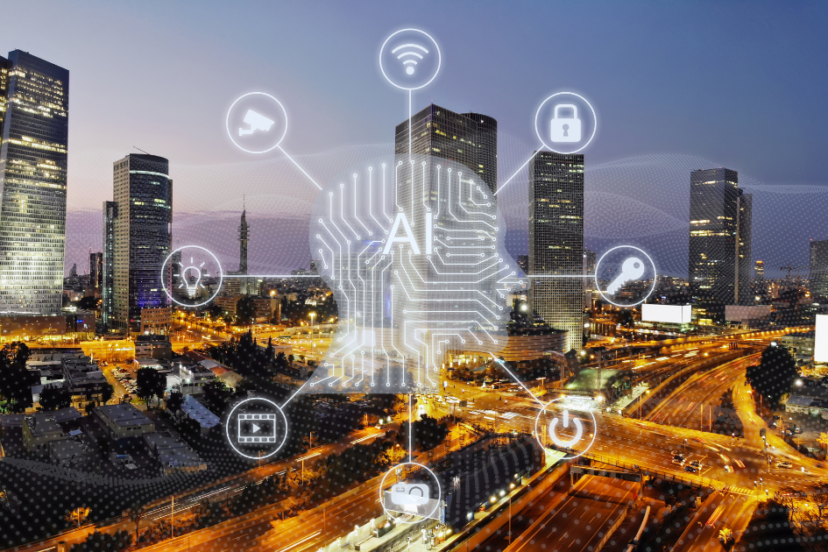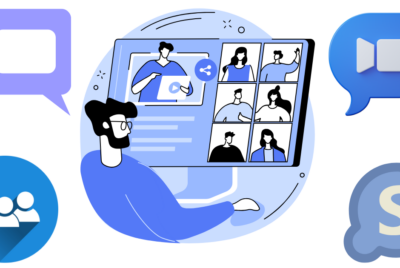Embracing Artificial Intelligence: How AI Will Change the Future
We are on the verge of a technological revolution powered by AI. It involves revolutionizing every part of our lives, not robots and phone calls. We welcome you to explore AI’s extraordinary environment. We will learn the tremendous impact on different industries and seamless integration into our daily lives. This is more than a technical exploration—it’s a look at how AI will change the future.
Join us as we explore AI, its opportunities, and its ethical issues. This article will help techies, business leaders, and others grasp the forces that will change our planet.
So buckle up for an exhilarating ride through AI’s limitless possibilities—the future is here, and it’s lovely. So, let’s dive in.
Understanding Artificial Intelligence (AI)
At its core, AI refers to the development of computer systems that can perform tasks that typically require human intelligence. These tasks include problem-solving, learning, decision-making, and understanding natural language. AI systems are designed to adapt and improve their performance over time.
AI encompasses many technologies, including machine learning, deep learning, natural language processing, and computer vision. Machine learning, for instance, enables computers to learn from data and make predictions or decisions based on that learning.
Historical Background of AI Development
The journey to artificial intelligence (AI) is a story of human curiosity, ingenuity, and the relentless pursuit of machines that can mimic human intelligence. It’s a tale that spans centuries, with each chapter marked by significant breakthroughs and innovative ideas.
The development of artificial intelligence (AI) has a rich history that spans centuries. It originated with the ancient civilizations’ fascination with automata and mechanical devices miming human and animal actions. Modern AI began in 1956 at the Dartmouth Conference when the term “artificial intelligence” was coined. However, after initial excitement, there was a period of stagnation known as the “AI winter.”
In the 1970s and 1980s, AI experienced a revival by developing expert systems and knowledge representation techniques. Machine learning gained prominence in the late 20th century, leading to the rise of AI in the 21st century. Today, AI is an integral part of our daily lives, powering virtual assistants and recommendation algorithms.
As we look ahead, AI continues to evolve and promises to bring about significant changes in various domains. It is crucial to understand its historical context to appreciate its current and future impact.
How AI Will Change the Future of Different Industries
Artificial Intelligence (AI) is not just a technological advancement; it’s a game-changer across diverse industries. Let’s explore how AI is being harnessed to revolutionize various sectors:
1. Healthcare
- Medical Imaging: AI algorithms analyze medical images such as X-rays, MRIs, and CT scans with exceptional accuracy, aiding in early disease detection.
- Drug Discovery: AI accelerates drug discovery by predicting potential drug candidates and simulating drug interactions, reducing research time and costs.
- Personalized Medicine: AI uses patient data to create tailored treatment plans, considering genetics, lifestyle, and health history, leading to more effective and personalized care.
2. Finance
- Predictive Analytics: AI analyzes vast datasets to predict market trends, enhancing investment decisions and risk management.
- Algorithmic Trading: AI-powered algorithms execute high-frequency trading, optimizing trading strategies and reducing human errors.
- Fraud Detection: AI detects fraudulent activities by identifying unusual patterns and anomalies in financial transactions, safeguarding against financial crimes.
3. Education
- Personalized Learning: AI-powered platforms adapt to individual student needs, providing customized content and feedback.
- Educator Support: AI analytics help educators track student progress and identify areas where additional support is needed.
- Language Learning: AI-driven language learning apps enhance language acquisition with interactive lessons and real-time feedback.
4. Entertainment
- Content Recommendation: Streaming platforms use AI algorithms to recommend movies, music, and TV shows based on user preferences, improving user experiences.
- Content Creation: AI-generated content, such as art, music, and literature, expands creative possibilities.
- Game Development: In video game design, AI creates dynamic and adaptive gaming experiences.
5. Manufacturing
- Automation: Robots and AI-driven automation systems increase efficiency, reduce production errors, and enhance product quality.
- Predictive Maintenance: AI predicts equipment failures, allowing for proactive maintenance to minimize downtime.
- Supply Chain Optimization: AI optimizes supply chain logistics, improving inventory management and reducing costs.
6. How AI will Change The Future of E-commerce
- Personalized Shopping: E-commerce platforms use AI to analyze user behavior and purchase history, enabling personalized product recommendations. This increases sales and enhances the customer shopping experience.
- Chatbots and Customer Service: AI-powered chatbots provide instant customer support, answer queries, and assist with online purchases, improving customer satisfaction and reducing response times.
- Inventory Management: AI algorithms predict demand and optimize inventory management, ensuring products are in stock when needed while minimizing overstocking.
- Visual Search: AI-driven visual search allows users to search for products using images, simplifying shopping and increasing conversion rates.
7. Transportation
- Autonomous Vehicles: AI technology is at the core of self-driving cars and trucks. These vehicles can reduce accidents, traffic congestion, and transportation costs.
- Route Optimization: AI algorithms analyze real-time traffic data to optimize delivery truck routes, reducing fuel consumption and delivery times.
- Ride-sharing and Mobility as a Service (MaaS): AI-powered ride-sharing platforms connect passengers with nearby drivers, while MaaS platforms integrate various transportation modes, making urban mobility more efficient.
- Predictive Maintenance: AI predicts maintenance needs for public transportation systems, reducing downtime and improving reliability.
Practical Applications of AI in Everyday Life
Artificial Intelligence (AI) has seamlessly integrated into our daily routines, enhancing various aspects of our lives. Here are five practical applications of AI that we encounter in our everyday activities:
1. Smart Devices and Virtual Assistants
- Smartphones: AI-driven personal assistants like Siri (Apple) and Google Assistant (Google) are at our fingertips, ready to answer questions, set reminders, and perform tasks through voice commands.
- Smart Speakers: Devices like Amazon’s Alexa and Google Home are becoming fixtures in our homes, allowing us to control lights, thermostats, and appliances with voice commands. They also provide news updates, play music, and answer general inquiries.
- Wearable Tech: Fitness trackers and smartwatches use AI to monitor our health, track physical activity, and provide real-time feedback and insights.
2. Personalized Recommendations
- Streaming Services: AI algorithms analyze our viewing and listening habits to suggest movies, TV shows, music, and podcasts tailored to our preferences. This personalization enhances our entertainment experience.
- Online Shopping: E-commerce platforms employ AI to recommend products based on our browsing and purchase history, making online shopping more convenient and enjoyable.
3. Healthcare Assistance
- Health Apps: AI-powered health apps help us track our daily steps, monitor sleep patterns, and manage chronic conditions. They provide valuable health insights and reminders for medication and appointments.
- Diagnostic Tools: AI aids healthcare professionals in diagnosing medical conditions and interpreting medical images, resulting in faster and more accurate diagnoses.
Conclusion
As we wrap up our journey on how AI will change the future, it’s clear that we’re standing at the precipice of a technological revolution. From healthcare to education, finance to transportation, AI is the force that’s reshaping the very foundations of our world.
As we move forward, let’s embrace AI with open arms but with a watchful eye. Let’s ensure that the future it paints is one where the benefits are widespread, the opportunities are abundant, and the potential for good knows no bounds.
Keep your curiosity alive, your adaptability sharp, and your sense of wonder intact.




